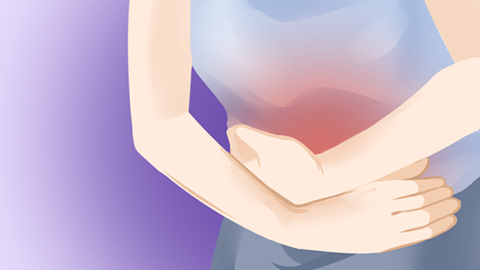Why do some patients with hernia experience abdominal pain?
Hernia patients experiencing abdominal pain may be due to factors such as traction from herniated contents, sudden increase in intra-abdominal pressure, hernia incarceration, infection associated with hernia, or intestinal adhesions. Symptoms can be improved through bed rest, controlling intra-abdominal pressure, and medication. However, if severe abdominal pain occurs along with vomiting or cessation of bowel movements, immediate medical attention is required.
1. Traction from hernia contents: Intestinal loops, omentum, and other tissues repeatedly protrude into the hernia sac, pulling on the hernial ring and surrounding tissues, causing dull or distending pain that worsens with physical activity. It is recommended to reduce strenuous exercise, avoid prolonged standing, and promptly rest in bed when discomfort from traction occurs, thereby reducing irritation caused by tissue pulling.
2. Sudden increase in intra-abdominal pressure: Conditions such as coughing, constipation, or intense physical activity can cause a rapid rise in intra-abdominal pressure, increasing compression on herniated contents and aggravating pressure on surrounding tissues, leading to abdominal pain. It is advised to actively prevent coughing, consume more dietary fiber to maintain regular bowel movements, and avoid sudden straining to control intra-abdominal pressure.

3. Hernia incarceration: When herniated contents protrude but cannot be reduced, they become trapped at the hernial ring, obstructing blood flow and resulting in severe, persistent abdominal pain accompanied by a fixed, tender mass locally. Under medical guidance, medications such as anisodamine injection, phloroglucinol injection, or ibuprofen sustained-release capsules may be used to alleviate symptoms.
4. Hernia with infection: Repeated friction of the hernia sac or inflammation of its contents may lead to local infection; inflammatory stimuli irritate surrounding tissues and cause abdominal pain, often accompanied by redness, swelling, and warmth at the site. Under medical supervision, antibiotics such as cefixime dispersible tablets, metronidazole tablets, or amoxicillin capsules may be prescribed to manage symptoms.
5. Intestinal adhesions: Previous surgeries or inflammatory conditions may cause the intestines to adhere to the hernia sac or abdominal wall tissues. During movement, these adhesion sites are stretched, triggering episodic abdominal pain. Follow medical advice to use medications such as lactulose oral solution, polyethylene glycol electrolyte powder, or pinaverium bromide tablets to relieve symptoms.
Daily care should include maintaining regular作息 (sleep-wake cycles), avoiding excessive fatigue, eating a light and easily digestible diet, reducing intake of spicy and irritating foods, engaging in moderate, gentle exercise to strengthen abdominal wall muscles, and promoting overall health.




